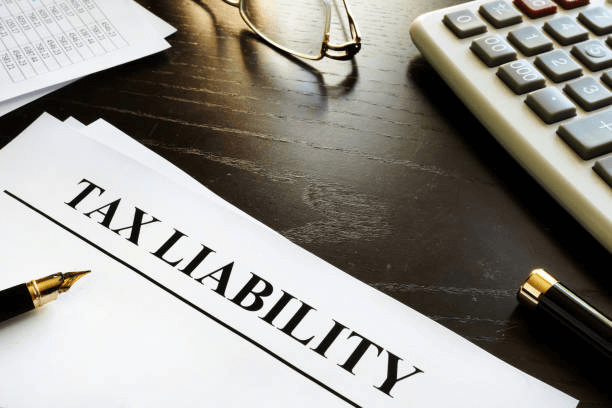When is the best time of year to retire? Let this guide help you out!
The prospect of retirement is a highly desirable objective that most individuals aspire to attain during their lifetime. It involves a protracted period of hard work, diligent saving, and astute investing, culminating in realizing retirement goals that are remarkable achievements.
Determining the best time of the year to retire is a crucial decision, as it can significantly impact your retirement income and tax obligations. Consequently, carefully evaluating your unique circumstances is necessary before making a conclusive decision. Several factors should be considered to arrive at the most favorable time, including but not limited to financial considerations, personal preferences, and external factors.

Important Factors That Can Help You Decide the Best Time of the Year to Retire
Aside from meticulously strategizing your retirement, it is imperative to discern the most optimal time of year to depart from your employment. Commencing your retirement on a particular date may influence various aspects that impinge on your retirement finances, such as benefits from your previous employer, Social Security payments, and taxes.
To this end, it is advisable to contemplate several factors when deliberating on the best time of year to embark on your retirement journey. These factors may comprise but are not limited to evaluating the financial implications, taking into account personal preferences, and factoring in any external contingencies that could impact your retirement timeline.
Here are some crucial factors that can help you decide when is the best time of the year to retire:
1. Your Pension Benefits
While increasingly uncommon, certain employees are enrolled in defined benefit retirement plans, which provide retirees with a fixed payout determined by a formula. Typically, this calculation factors in the duration of employment with the company, incentivizing employees who remain with the same employer for a prolonged period.
The methodology for determining pension benefits varies between plans. Some plans grant an additional year of service credit as soon as the employee works a single day into the following year. In contrast, others require half or an entire year’s work. It is crucial to be well-informed about the details of your plan’s benefit calculation to select the best time of the year to retire.

2. Retirement Accounts
Suppose you lack adequate liquid funds to sustain yourself in the initial months of retirement and are required to make withdrawals from your retirement accounts immediately. In that case, consider the best time of the year to retire towards the end or beginning of the year.
Because taking withdrawals from traditional IRAs or 401(k)s during years when you earn a lot of money could put you in a higher tax bracket and result in larger-than-expected tax liabilities, it is best to avoid doing so.
Furthermore, early retirees must exercise caution when withdrawing from their retirement accounts to avoid triggering early withdrawal penalties. Generally, withdrawals from IRAs made before age 59 ½ are subject to a 10% penalty charge. As such, it is advisable to avoid making withdrawals that may trigger this additional fee.

3. Additional Benefits
Additionally, it is essential to factor in any supplementary retirement benefits you may be entitled to before departing from your job. It is imperative to ensure that you remain with your employer long enough to collect any annual bonuses while considering the potential impact of such income on your tax liabilities. For instance, some businesses pay out annual bonuses in March. As a result, subject to your other income sources, if you retire after earning money for a few months, you can continue to pay taxes at a lower rate for the entire year.
Often, individuals must account for the income they may receive from accrued but unused vacation time. It is crucial to communicate with your employer to ascertain whether you are owed compensation for accrued vacation days and when that payment will be made. As expected, this payment counts as income and can significantly impact your tax obligations.

4. Your Social Security Benefits
Deciding the best time of the year to retire can also affect your Social Security benefits. Delaying the commencement of Social Security benefits until after attaining the full retirement age leads to an increase in payment upon receipt of benefits. However, it should be noted that once the recipient reaches the age of 70, the payments stop increasing.
Hence, if an individual turns 70 in the year of their retirement, it is advisable to postpone receiving benefits until after their birthday. This not only helps to minimize their tax liabilities for that year but also maximizes their payment amount.

5. Other Matters
Aside from the factors mentioned above, other matters can help you decide when is the best time of the year to retire. Planning for healthcare expenses during retirement is essential, which can be a considerable cost for most individuals. Sadly, many people overlook this aspect.
Furthermore, consider making maximum contributions to your retirement accounts before retiring. While it may seem insignificant, such contributions can accumulate significantly over time with the power of compounding. The money invested during your 60s can cover end-of-life care expenses during your 80s or 90s.

The Ultimate Question – When is the best time of the year to retire?
Determining the best time of the year to retire is a highly individualized decision that requires a thorough analysis of your unique circumstances. Remember that earning significant income or making early withdrawals from retirement accounts can increase your tax liability.
Moreover, it’s crucial to consider any additional income, such as bonuses or accrued vacation payouts. Additionally, verify the minimum service length required to earn another year’s credit if you are enrolled in a defined benefit plan. Ensuring you meet the eligibility requirements before retiring will help you maximize your pension benefits.
Preparing for retirement is an essential aspect that requires careful consideration. Determining the optimal timing to embark on this significant milestone in life is necessary.
It is essential to know what is the best time of year to retire to identify the most suitable choice for you to ensure that you achieve the retirement lifestyle you desire, whether it involves relaxing at a cottage on a lake, gardening in your backyard, engaging in activities with your grandchildren, or traveling the country. Careful planning is necessary to guarantee that you achieve the retirement you desire.
